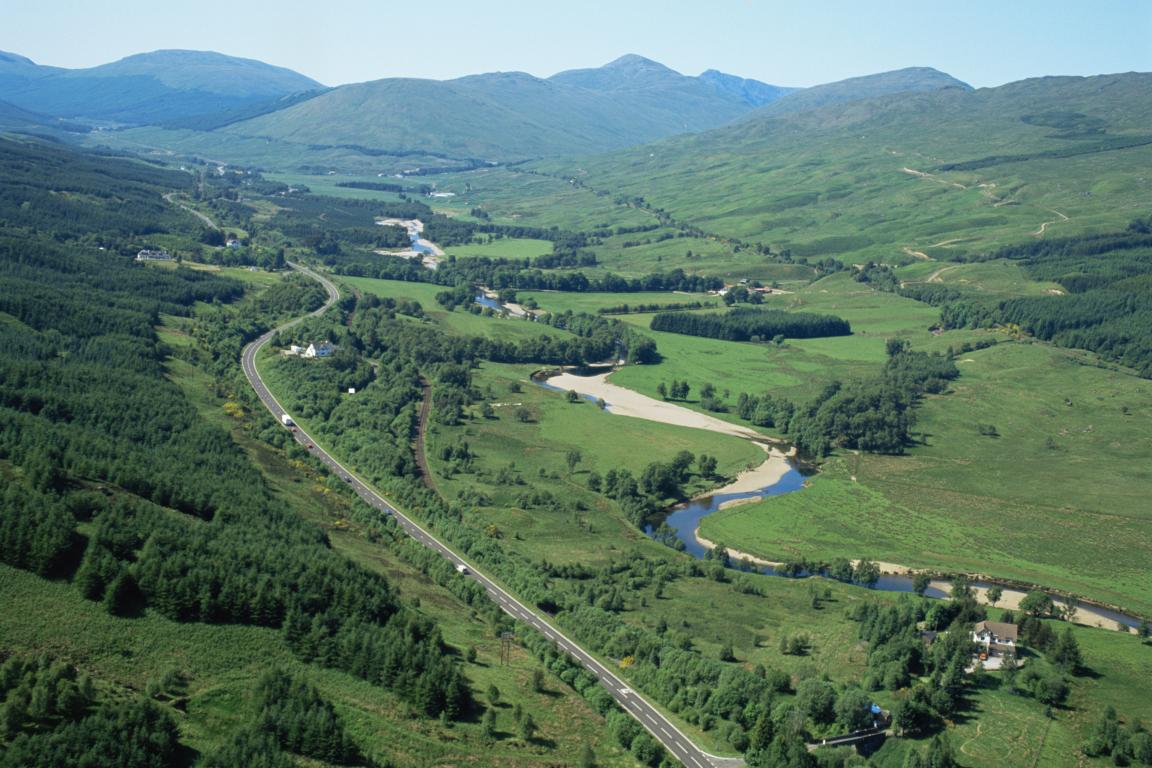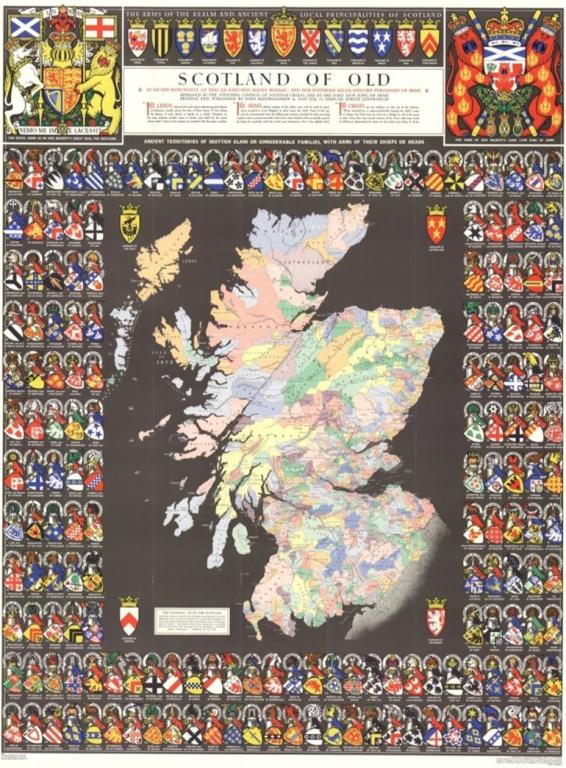
What is Born in the Bone
By Jack McClintock
Somewhere among the mists of time your fathers and mine shared life and fellowship. Scotland or America, should we not then still be brothers?
It’s hard to know ourselves. Ask ten people to identify what makes them who they are and you’ll get ten different stories. They’ll likely share common elements, but all will include personal things that illustrate each person’s uniqueness. Somewhere in the mix of elements we use to categorize ourselves is the concept of nationality, and whatever lies at the root of that is what this story’s about.
Things aren’t always as they appear, and the essence of a thing may have to do more with longings of the heart than chancy incidentals like complexion, politics, or religious affiliation. I will tell you now that I’m a Scot. Not just any Scot, but a Highland Scot with roots sunk through to the core of the earth. The reason I believe this to be true is the sum and substance of the story I want to share.
***
My name’s McClintock. The Gaelic translation of the name means something like “The son of the servant of Finnian.” St. Finnian as it turns out was a monastic saint whose followers converted the 'savage' pagans of Scotland to Christianity. Whether or not it was a wise thing to assist him in doing that, the name’s not meant to imply that my family cleaned his castle for him. I won’t trouble you by going into arcane dates, attributions, and word meanings; all that’s important is that you know my family was in the Highlands of Scotland long before there was a Scottish nation.
***
My upbringing was influenced by a few key factors, but ancestry was not one of them. Irish and Scottish by background, I was raised in a working class culture with practically no appreciation for ethnicity. My wife’s father and my mother’s father came from the same locale in Ireland. They emigrated a generation apart, but my wife still had relatives alive there at the time, and in 1997 we visited Currow, County Kerry to meet them. Aware of my Scottish background, Kathleen expressed interest in visiting Scotland, so let me make clear it was her wish, not mine that led to our next trip to the Isles. In 2004 we arrived near Glasgow eager to sample Scottish hospitality, but without the sense that we were connected to the land by family ties.
Two days later we were on route A82 headed north to a place called Culloden. We were traveling near a famous body of water named Loch Lomond when a strange thing happened. As we drove along chatting happily over Scottish music playing on a CD we’d purchased for the trip, we happened upon a road-sign that announced to travellers, “YOU ARE NOW ENTERING THE SCOTTISH HIGHLANDS.” I commented on the sign as we continued along and gave it no further thought. Minutes later, without warning, I suddenly began crying. Let me mention how freakishly rare this was; I do not cry. What was even more remarkable, while there’d been good cause for tears the first time it happened, there were virtually none on this occasion.
The day was fair, the music upbeat, and my mind was fully engaged in pleasant conversation with my wife. We were sharing comments about how beautiful the bonnie, bonnie banks of the famous Loch Lomond were, when without any provocation tears began flowing from my eyes. There was no sadness, no heaving, gasping, or choking, just a silent flood of tears. I noticed my face was moist, then wet, then dripping. In a startling cascade, tears began pouring from me until my vision became so poor I had to pull off the road to avoid a crash.
 Image provided by VisitScotland/ Paul Tomkins
Image provided by VisitScotland/ Paul Tomkins
The A82 Road As It Passes Though Strath Fillan Between Crianlarich and Tyndrum
My wife and I sat parked in a wide spot along the roadside apron for nearly ten minutes, alarmed and wondering what to do. The tears stopped as abruptly as they’d begun. I dried my face as we spoke about the event, then started back on our way once it seemed the episode was over. We talked about what had happened frequently in the days and weeks that followed, but no explanation offered itself. The event never reoccurred, and years later all I’ve been able to deduce is that somewhere deep within me lies a reservoir of what must be ageless memories which reacted to the sign announcing return to my ancestral home.
Over the years I’ve reconstructed some of my father’s history and learned his family was what’s known as a Sept of a Highland clan called MacDougall; there’s also a connection to a second clan named Colquhoun, and an entire genealogy well beyond the scope of this story. Suffice to say, my father’s people were from an area of Scotland known as Argyllshire, the very location we were in when the episode of tearfulness occurred. I’ve no way of explaining that occurrence without attributing it to a kind of epiphenomenon; one related to my lineage, and the place McClintocks of today called home centuries ago.
 Image provided by Jack McClintock/ Copyright Moncrieffe and Pottinger
Image provided by Jack McClintock/ Copyright Moncrieffe and Pottinger
Bartholomew's Scotland of Old Clan Map (Moncrieffe and Pottinger 1958)
My speculations about the cause of this peculiar event may be wrong, but its occurrence leaves me to wonder if this sort of thing is unique to me, or a feature lying dormant in us all. I cannot say what’s true of mankind in its vast reality, but believe I’ve come to understand what Robert Burns meant, when he said “My heart's in the Highlands, my heart is not here; My heart's in the Highlands a-chasing the deer.”
Somewhere among the mists of time your fathers and mine shared life and fellowship. Scotland or America, should we not then still be brothers?
To read My Heart's in the Highlands by Robert Burns please click here
We Want to Hear from You!
Share your stories of your family history in the Highlands and Islands
Stories are at the heart of what we do as a project and we are always looking to learn more about what the Highlands and Islands means to people who live, work, and visit here. The Highlands and Islands have a fascinating and remarkable history. We would love to know, do you have a favourite story from your family history or a family figure that you feel represents the 'Spirit of the Highlands and Islands'? Tell us below, we can't wait to hear from you!
Click here to share your story through our online story portal